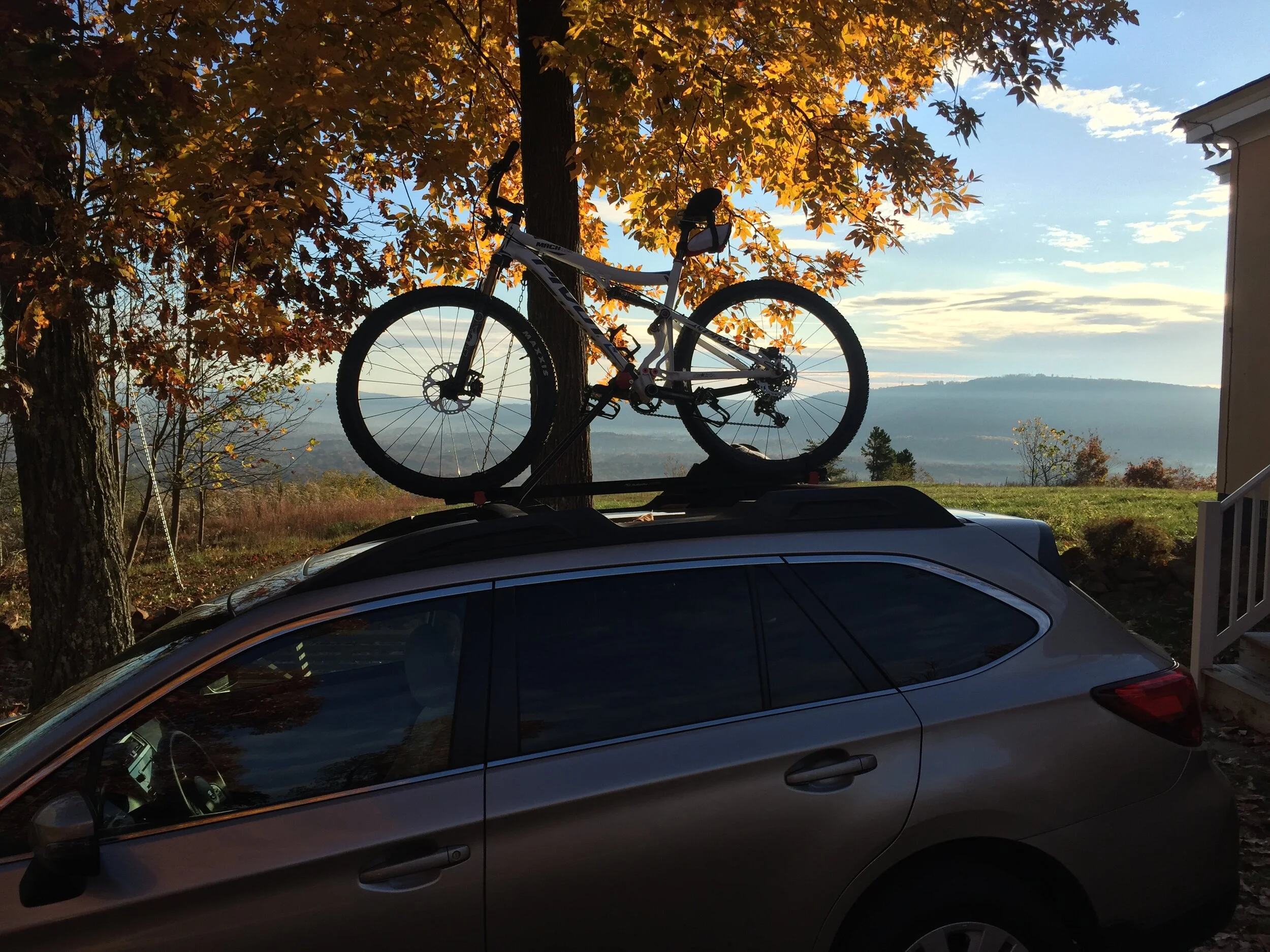How I found the time to write the book…
I’m riding my mountain bike on a bleak December day in 2018 when my wheels start to lose traction on a sheet of ice. The next thing I know, I’m flying gracelessly through the air. I hear my bike strike the sheet of frozen gravel and clang down the hill. I hit solid ground with unexpected violence. I do not tumble or slide. I land like I fell straight from the rafters of an ice rink, on my side. I’m staring up at a gunmetal gray sky, and I try to get up. Nothing happens. Baffled, I look and discover my right leg is holding on to my body with only skin and muscle. My femur, the largest and strongest bone in the human body, is entirely broken away from my hip, shattered to pieces. I’m snapped in half, all by myself, in the middle of nowhere on a mountain road in Albemarle County, Virginia.
“Good god,” I think, “what have I done?”
If I don’t get the next few minutes right, then I won’t be around to make any more mistakes ever again. My leg is rapidly ballooning with blood. I try to stay still, afraid that any movement might push bone shards through an artery and finish me off before help can arrive. Since my phone was in my left pocket, it survived the crash. One bar proves signal enough to connect a 911 call with enough clarity to describe my location. Then I wait and try not to pass out. The sounds of a siren can carry for miles out in the country, and I hear them for a long time, as they grow and fade in volume, from a whisper to a wail, as the emergency vehicles make their way to me through the valleys. Sirens often intrude on our lives, but almost always inconsequentially. We don’t stop to ask for whom those bells toll. As I hear the ones that toll for me, I desperately want to reverse the rickety decision to ride in these icy conditions, and I struggle to imagine how I will ever walk again on what remains of this leg. I’ve never felt so scared or alone in my entire life.
Four EMTs eventually arrive to scrape me off the steep hill, and I watch them risking their own limbs to muscle me from the ice into the ambulance. I remember something Fred “Mr.” Rogers had said on his children’s television show, recalling how his mother comforted him when he saw something frightening on the news. "Look for the helpers. You will always find people who are helping.” They rush into danger when the rest of us run out. A young paramedic quickly emerges as the incident commander, and he will tend to me in the back of the ambulance. I see his ID badge and compliment his memorable name: Raven. “Your folks liked Edgar Allen Poe?” No, his then four-old-old brother thought it would be cool. Indeed.
Raven asks me to rate my pain on a scale of 1-10, to which I reply “35.” He laughs. I’m not joking. “No really, this is approximately 3.5 times worse than the worst pain I’ve ever felt. Do the math!” He reminds me that the scale tops out at 10. “Okay, it’s a ten.” I wince when a big pothole shakes the van. “I might have been a 10 before, but this just got worse, so we’re at least an 11 now.” The conversation continues like this for some time, apparently growing tiresome, and he solves that problem by pushing a drug into my IV that shuts me up. Quoth the Raven, “Nevermore.”
They take me to the only Level 1 trauma center in the area, at the University of Virginia. As they wheel me in, I still don’t fully understand the gravity of the situation, and I ask Raven if he thinks I’ll have to wait long to see a doctor. “You’re going right in.” For a second I appreciate the VIP treatment and then remember this is a party I would rather not attend. A team awaits. Someone starts snipping off my clothes, including my lucky windbreaker, once bright yellow, that I earned as a 2003 Boston Marathon volunteer. I begin to ask if it could be saved and then I realize it has no luck left to give.
UVA is a teaching hospital, and more young medical professionals begin to appear, one after another, like undergraduates sniffing out free pizza. Most of them stand back at a respectful distance, so I assume they probably just want to see what happens. I’ve spent my entire professional life observing expressions, and I start to get nervous looking at their grave faces. Then the audience parts for the arrival of former air force flight surgeon David Weiss, looking like he just hopped out of the cockpit of an F-15, if pilots wore scrubs instead of flight suits.
He puts everyone at ease. We have a few minutes to talk while the operating room is prepped. He tells me about the months I’ll be laid up after I get out of the hospital. Sometimes life sends opportunities in curious packages.: I’ve wanted to share the lessons I learned building businesses and serving others, but never found the time to write the book.
Into surgery I go.
I woke up with a titanium rod extending from my hip to my knee that permanently secured the five fractures in my femur. During the year I spent in intensive rehabilitation learning to walk again, I had a lot of time to reflect on the choices I had made and what I had learned along the way. I included the most important of those lessons in Profit Wise.
